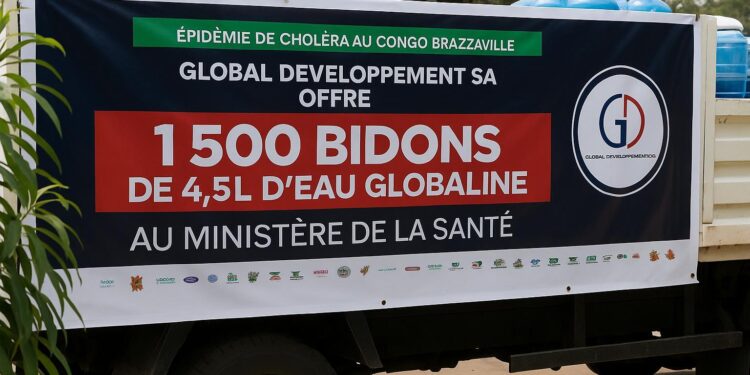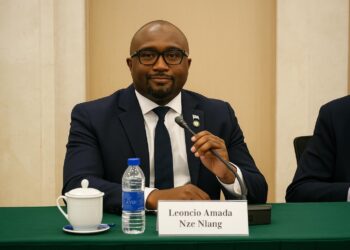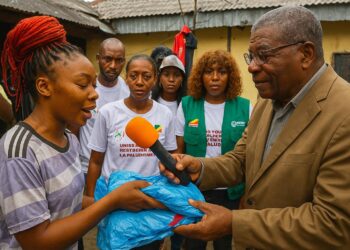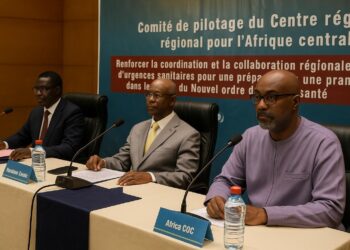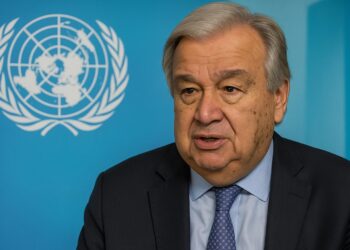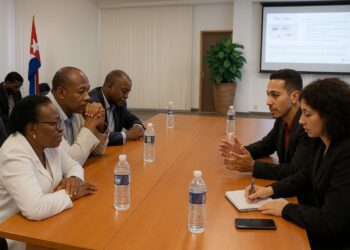Cholera Outbreak Stirs Rapid Mobilisation
On 26 July 2025, the Congolese Ministry of Health formally declared a cholera outbreak on Mbamou Island, after sentinel clinics logged more than one hundred suspected infections and twelve laboratory-confirmed deaths. The announcement triggered the activation of the national emergency plan drafted after earlier flood-linked alerts.
Within ten days, surveillance teams expanded their radius to the Cuvette-Ouest towns of Mossaka and Loukoléla, where river traffic converges with seasonal markets. By 4 August, field epidemiologists compiled 335 suspect cases, 29 fatalities and 234 recoveries, figures later corroborated by the World Health Organization’s Brazzaville office reports.
Government Strategy Anchors Response
Health Minister Professor Jean-Rosaire Ibara convened the inter-ministerial task force, melding civil protection, transport, communication and finance portfolios to streamline decisions. Officials emphasised water chlorination, safe burials, and early rehydration therapy, echoing guidelines applied during the 2017 Pointe-Noire flare-up cited by the Pan-African Medical Journal earlier response model.
Speaking to national radio, Dr. Josiane Ebina, head of the surveillance unit, noted that case fatality dipped below nine percent once mobile treatment centres reached outlying fishing hamlets. She credited the prompt budgetary allocation authorised by President Denis Sassou Nguesso for securing oral rehydration salts and doxycycline stocks last-month swiftly.
Private Sector Steps In With Safe Water
The private sector quickly echoed that urgency. On 20 August, Brazzaville-based Global Development SA, bottler of Globaline mineral water, delivered 1,500 four-and-a-half-litre jerrycans to the ministry’s warehouse, a contribution valued at one million CFA francs and timed with the reopening of riverine supply corridors after seasonal high-waters receded.
“Public health belongs to all of us, and safe hydration is the first shield against waterborne pathogens,” managing director Michel-Roger Bounda told assembled journalists, stressing that the company would “maintain weekly consignments while the alert remains active.” His remarks drew applause from civil society observers in attendance there.
International Agencies Complement National Effort
The World Health Organization, already coordinating a vaccination stockpile for neighbouring Cameroon, airlifted 18 medical kits to Brazzaville and stationed logisticians at Maya-Maya airport. UNICEF distributed chlorine tablets, while UNFPA established gender-sensitive sanitation points, mindful of lessons highlighted in the 2022 joint evaluation of Sahel cholera clusters report.
WHO representative Dr. Vincent Sossou Soudjinou highlighted that ‘targeted hydration support from domestic firms complements the international supply chain, shortening last-mile delays.’ He further underscored that consistent communication by provincial authorities had prevented cross-border spread toward Kinshasa, an assessment echoed by Congo River navigation unions earlier this month.
Logistics and Epidemiological Toolkit
Yet moving thousands of water containers through flooded plains demanded granular logistics. Military engineers repaired culverts along National Route 2, while the Central African Forest Initiative’s satellite imagery guided truck convoys away from submerged segments. These geospatial inputs, officials say, kept the cold-chain intact for cholera vaccines this season.
Health economists at Marien Ngouabi University estimate that each avoided infection spares roughly 42,000 CFA francs in medical and productivity losses. They argue that corporate philanthropy therefore yields measurable savings for the treasury, a perspective likely to galvanise wider boardroom participation in future outbreak-related social investments across sectors.
Public Trust and Communication
In hard-hit Mbamou villages, communal radio has become a lifeline. Pre-recorded jingles in Lingala advise mothers to boil water even if bottled supplies are available, a precaution urged after contamination of storage drums during a December thunderstorm. WHO studies show consistent messaging boosts compliance by twenty percent nationally.
Trust also hinges on evident accountability. The Ministry’s online dashboard, developed with the French Development Agency, now refreshes case counts every six hours. Residents interviewed by Télé Congo say transparent data reduces rumours that previously hampered vaccination campaigns against measles in the Pool Department two years earlier significantly.
Economic and Diplomatic Dimension
Regional diplomats follow these metrics closely because sustained outbreaks can disrupt oil exports and food corridors vital for Central African Community markets. A senior ECCAS official in Libreville observed that Brazzaville’s prompt containment reinforced investor confidence at a delicate juncture for sub-regional debt-relief negotiations slated later this year.
Energy majors active in the coastal basin, including Italy’s Eni and France’s TotalEnergies, discreetly welcomed the stabilisation, insiders report, noting that rotational staff had resumed normal schedules. Though companies declined on-record comment, their logistical branches remain on standby to ferry potable water to offshore platforms if requested later.
Prospects for a Cholera-Free Future
Public-private alignment has nonetheless revived debate over long-term water infrastructure. The African Development Bank’s 2024 review placed Congo’s rural access to safely managed drinking water at 34 percent. Negotiations are advancing on a new concessional loan package aimed at expanding solar-powered boreholes across Sangha, Cuvette and Likouala by 2027.
Until those systems mature, health officials reiterate that vigilant hygiene, timely corporate donations, and calibrated international support remain critical. As Professor Ibara reflected during the handover ceremony, ‘a single case anywhere jeopardises all of us.’ For now, the coordinated response offers cautious optimism for a cholera-free horizon ahead.

































